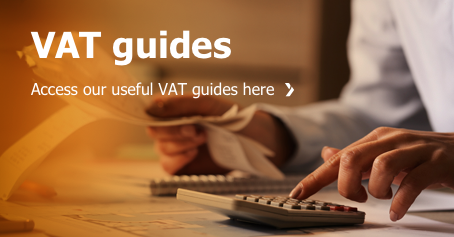Sweden VAT Guide
Erika Hed
- What is the tax called?
- What is the tax authority?
- What type of tax is it?
- What is it due on?
- What are the VAT rates?
- What does a VAT number look like?
- Is there a registration limit?
- When does a non-established entity need to register?
- When is the place of supply in Sweden?
- Does a non-established entity need a fiscal representative?
- How often do VAT returns need to be submitted?
- Are penalties imposed for late registration?
- Are penalties imposed in other circumstances?
- Can VAT incurred by non-SE businesses be recovered?
- Can VAT be deducted?
- Do I need to issue an invoice?
What is the tax called?
MOMS – Mervärdesskatt
What is the tax authority?
Skatteverket
What type of tax is it?
It is an indirect tax, meaning it is collected by businesses but ultimately paid by the consumer. Businesses act as intermediaries, collecting the tax and remitting it to the government.
What is it due on?
In Sweden, the typical VAT rates are:
- 25% (standard) for most goods and services.
- 12% for items like food, hotels, and restaurant services.
- 6% for books, newspapers, and public transport.
- 0% Healthcare, education or financial services etc.
There are also exemptions for certain services and products that are not subject to VAT.
What are the VAT rates?
25% 12% and 6%
What does a VAT number look like?
A Swedish VAT number looks like this: SE + 12 digits
The 12 digits consist of the company’s organization number followed by “01”.
Example: SE123456789001
Is there a registration limit?
If you estimate that your sales will not exceed SEK 120,000 excluding VAT during every calendar year, you are automatically exempt from VAT. If you are exempt and only sell goods and services within the country covered by the exemption, you do not need to register for VAT. The exemption is voluntary.
You can always choose to become subject to VAT even if you do not exceed the threshold of SEK 120,000. In some cases you must be registered for VAT even if your sales are SEK 120,000 or less.
When does a non-established entity need to register?
A non-Swedish company with operations in Sweden should normally be registered with the Swedish Tax Agency. This applies whether or not the company has permanent establishment in Sweden.
If you carry out activities that make you liable to pay or recover VAT, you must be registered for VAT. If you run a business and sell goods or services in Sweden, you must charge VAT to your customers.
You must register your business for VAT if you intend to sell VAT-liable products or services in Sweden, on which you will pay the VAT. This applies whether or not your company is established in Sweden.
When is the place of supply in Sweden?
Place of Supply for Goods
- Domestic sales: The place of supply is the country where the goods are located at the time of sale.
- Cross-border sales within the EU:
- B2B sales: The place of supply is the EU country where the customer is established. The reverse charge mechanism often applies.
- B2C sales: The place of supply is the country where the goods are delivered unless the seller exceeds the threshold for distance sales in the customer’s country, in which case the VAT is applied in the customer’s country.
- Exports to non-EU countries: The place of supply is outside the EU, and the sale is typically zero-rated for VAT.
- Imports into the EU: The place of supply is the country where the goods are cleared for customs.
Place of Supply for Services
- B2B Services: The place of supply is generally the location where the customer is established. The reverse charge mechanism often applies, meaning the customer accounts for VAT in their country.
- B2C Services: The place of supply is generally the location where the supplier is established, with exceptions for specific services e.g. digital services.
- Specific rules for certain services:
- Event admission fees: The place of supply is where the event occurs.
- Passenger transport: The place of supply is based on the distance traveled in each country.
- Digital services: For B2C, the place of supply is the customer’s location (e.g., their country of residence).
Does a non-established entity need a fiscal representative?
Non-established entity (i.e., a foreign company that does not have a permanent establishment in Sweden) may need a fiscal representative in Sweden, depending on its activities.
How often do VAT returns need to be submitted?
In Sweden, the frequency of VAT return submissions depends on the annual turnover of the business. The Swedish Tax Agency (Skatteverket) assigns one of the following reporting periods:
1. Monthly VAT Reporting
Turnover: More than SEK 40 million per year
Deadline: The 26th of the following month (e.g., January’s VAT return is due by February 26).
2. Quarterly VAT Reporting
Turnover: Up to SEK 40 million per year
Deadline: no later than the 12th of the second month following the accounting period, except in august when it is the 17th.
3. Annual VAT Reporting
Turnover: Up to SEK 1 million per year. Deadline depends on what financial year the entity has.
Are penalties imposed for late registration?
If a business should have been registered earlier, Skatteverket may retroactively register it for VAT.
This means the company must pay all VAT due from the date it should have been registered, plus interest and potential penalties.
Late registration can lead to a rejection of a VAT refund request.
If the Swedish authorities determine that the late registration was intentional to avoid taxes, the company may be investigated for tax fraud.
If the company was supposed to file VAT returns but failed to do so:
- A tax surcharge of 20% of the unpaid VAT may apply if the VAT reporting is incorrect. If the error is deemed unintentional and is corrected before Skatteverket contacts the company, penalties may be reduced.
- If a VAT return is submitted late but before Skatteverket contacts the business, a lower penalty may be charged.
Are penalties imposed in other circumstances?
1. Late VAT Return Submission
If a VAT return is submitted late, a penalty fee is imposed.
If the delay continues, additional penalties may apply.
2. Late VAT Payment
If VAT is paid after the due date, is charged on the outstanding amount.
If payment is significantly late, enforcement actions (e.g., debt collection by the Swedish Enforcement Authority, “Kronofogden”) may follow.
3. Incorrect VAT Reporting
- Incorrect VAT Returns (e.g., underreporting VAT) can lead to a tax surcharge of 20% of the unpaid VAT.
- If the error is deemed unintentional and is corrected before Skatteverket contacts the company, penalties may be reduced.
Can VAT incurred by non-SE businesses be recovered?
EU businesses apply via their own country’s tax portal Non-EU businesses apply directly to Skatteverket.
Can VAT be deducted?
VAT can be deducted if it relates to taxable business activities.
Do I need to issue an invoice?
The main rule is that invoices must be issued. There are exceptions e.g. a simplified invoice (e.g., receipts from cash registers) can be issued for smaller transactions.


